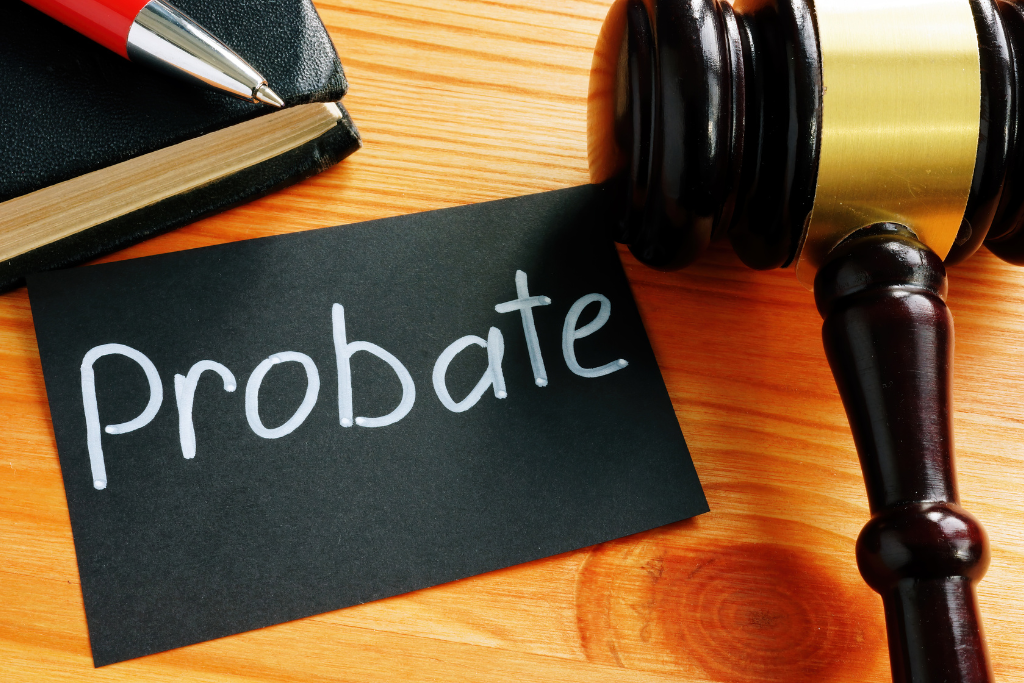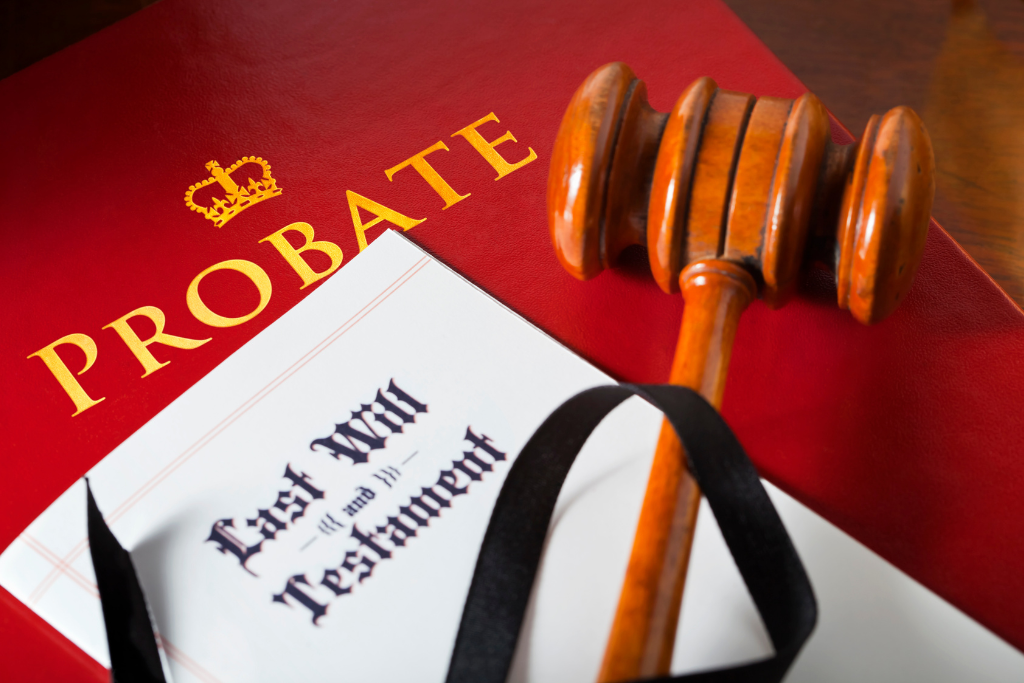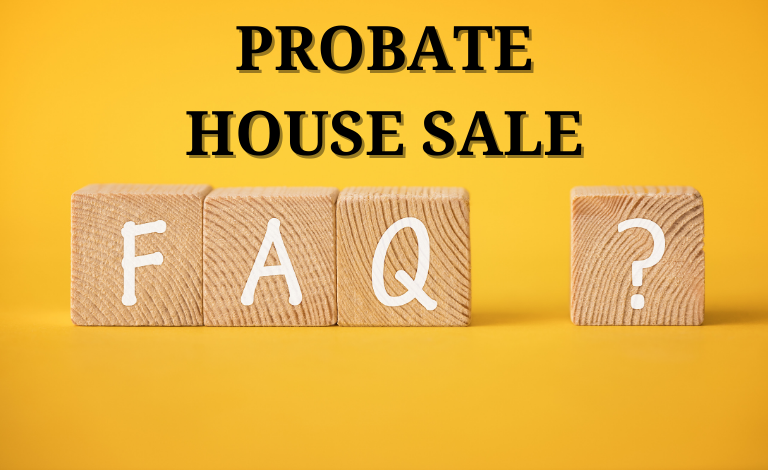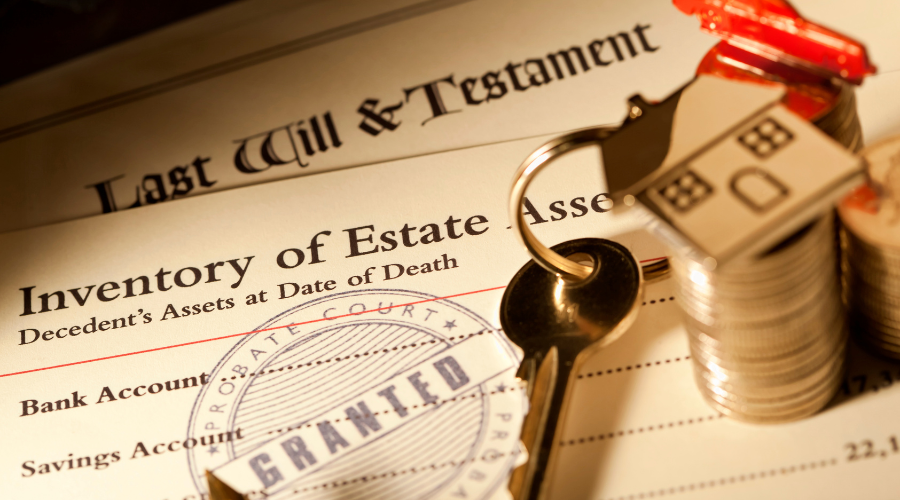Selling a House in Probate Oregon
If you’ve recently inherited a Oregon house through probate, you may be interested in selling it. Most people don’t need an extra house and don’t want to deal with the taxes, maintenance, and other costs that are required when owning a house. Fortunately, you can successfully sell your Oregon home during probate with the right strategy.
Table Of Contents
- Probate Sale Meaning Oregon
- Probate Process for Selling Real Estate in Oregon
- When Can the Executor Sell the Probate Property in Oregon?
- Can You Sell a House Before Probate is Complete in Oregon?
- Do You Need to Go Through Probate to Sell an Inherited House in Oregon?
- Oregon Probate House Sale Issues
- Options You Can Consider When Selling a Probate House Oregon
- Probate House Sale Frequently Asked Questions
Probate Sale Meaning Oregon
Probate simply refers to the legal process of validating a person’s will and settling their estate. This process is administered by a personal representative, also known as an executor, and is overseen by the probate court. A probate sale simply refers to the process of selling a house that is still within the probate procedure. Unlike traditional home sales and foreclosures, there are a variety of steps that must be taken throughout a probate sale for it to go through correctly.

Probate Process for Selling Real Estate in Oregon
When your loved one dies, their close family must follow the proper procedure to initiate probate in an effort that closes up their estate. Unless the estate is considered to be “small” by Oregon standards, it must go through the entire probate operation. We’re going to share with you the exact steps that will need to be taken with most probate cases below so that you have a better understanding of what lies ahead.
File for Probate With a Local Court
The first step is to initiate the probate operation with your local clerk’s office via an estate affidavit. Typically, a surviving spouse, siblings, parents, or the beneficiaries of the person’s will that passed away can file to start the probate process. There is various documentation and information that must be provided, such as a signed death certificate, to complete the filing process.
The Court Appoints a Personal Representative
Next, the court is going to determine who can be the executor of the estate. Typically, this person is named within the descendant’s testament. However, if you’re dealing with an intestate estate, then someone must petition the court to take the role. There are various qualifications that must be met to be assigned as the official personal representative for the estate assets and liabilities.
Estate Assets are Sold
All the belongings and assets owned by the person that passed away are now under the control of the estate’s representative in charge. They can take care of selling assets and paying off any creditors’ liabilities that the deceased person left behind. This person must follow the instructions within the will of the person that died.
It’s important to realize that estate properties, including houses and mobile homes, can’t be sold without the authorization of the court. The representative is required to petition the court to get authorization to sell the estate’s title. Once this is done, they may list the property for sale. However, the court’s advice and involvement don’t stop there.
Once an offer is accepted on the home, the court must approve the offer, and the prospective buyer must put down a costly deposit equal to 10% of the purchase price. This is done at a court hearing. However, there is an additional caveat that you need to be informed of. At the court hearing, the judge can open the floor to additional bidding, known as overbidding.
They can set a particular amount that any bids must be over the contracted sale price. If a different person decides to bid on the house at a costlier price than the buyer stated in the contract, they can buy the house instead. Whoever ends up being the highest bidder at the court hearing can be the one who can legally purchase the house after supplying the funds. Always remember that it’s in the court’s best interest to get as much money as possible from the sale of the house.
When Can the Executor Sell the Probate Property in Oregon?
As with any probate strategy in the state of Oregon, there is always a personal representative chosen to handle the care of the estate’s assets and liabilities throughout probate. Once this personal representative is named, they must petition the court to get authorization to sell the property.
Only after they receive this authorization can they proceed to list the property for sale. The authorization can typically come along with set standards for a minimum sale price and set realtor commission fees.
Can You Sell a House Before Probate is Complete in Oregon?
It’s entirely possible to sell a house that’s in the probate procedure in Oregon. In fact, it’s commonly done to help beneficiaries relieve themselves of the responsibilities that come along with the new property, like property taxes and upkeep fees. However, it’s important to clarify how this process works.
Just because you’re able to successfully sell a Oregon?
The idea of having to go through a lengthy probate procedure can be daunting in itself. It can have you wondering if it’s possible for you to skip the entire process and simply sell the Oregon house. Unfortunately, there are only two factors that can make you eligible to sell an inherited house.
A small estate in Oregon is one in which the total asset values are equal to $275,000 or less. Out of the total assets, no more than $75,000 can be from personal belongings, and no more than $200,000 in assets can be from real estate. It’s imperative to note that most estates don’t fall below these limits and must go through the entire state’s probate process.
Another prospective method for avoiding probate and helping to reduce inheritance tax, capital gains tax, and other forms of taxation are to put the property in a living trust. This must be done by the deceased person before their passing. Essentially, they’re giving up full ownership of the house to those named as the trustees of the living trust. Once they pass, the living trustees are still considered designated owners of the property title. A great estate planning attorney can help to determine if a living trust is active for any property.
Oregon Probate House Sale Issues
When you opt to sell a Oregon home that’s in the probate process, there are some added issues that may crop up along the way. By understanding what some of these common issues are before opting to sell, you can work to prepare yourself and avoid some of these common pitfalls entirely.
First and foremost, it can be difficult to find a real estate agent to list the property. It’s vital to realize that the court is going to set a fee that the real estate agent may be paid based on the sale price of the home, such as 3%. There is no negotiating this price. The realtor can only receive the commission fees after the probate property is completely sold. This means after the court hearing, which can take months or more in its entirety to reach.
Another issue with probate home selling is that it doesn’t bring in as many prospective buyers. Most people looking for a home don’t want to wait to go through the lengthy sales process. Keep in mind that even if they supply a 10% deposit and sign a contract to buy the home, they aren’t guaranteed it. They may be outbid during the overbid process and have to start all over looking for a new home to buy.
One pestering issue that most of those dealing with a loved one’s estate figure out real quick is that the court can be very restrictive. Most courts won’t allow you to sell a home for less than 90% of its appraised value. Some courts may even require a higher value if the deceased person’s liabilities are high. You can’t change what the court sets. You just have to find a prospective buyer that is willing to pay what the court says. This can take some valuable time to find.
Options You Can Consider When Selling a Probate House Oregon
As a seller of a probate house, you have many options when it comes to your method of selling. You can have a real estate agent list the property for you, sell the property to a family member, or opt to sell to a cash home buyer. Before you decide which route you’re going to take, it makes the most sense to understand both the benefits and disadvantages of each selling option.

Listing the Probate Property With a Oregon Real Estate Agent
When it comes to selling an Oregon inherited home, your first thought may be to contact a licensed realtor. However, the process may be harder than you initially think, and it’s imperative to understand both the pros and cons that go along with using a real estate agent.
Pros
- Can sell for a high price
- A Realtor can negotiate on your behalf and handle all the documents
Cons
- Many realtors won’t sell probate houses due to restricted commission fees
- Can take a long time
Selling the Inherited Property to a Family Member in Oregon
When you inherit a house as part of a decedent’s estate, you may opt for simply selling it to another family member. While this does come with some great benefits, you’ll also want to be aware of any drawbacks before agreeing to go down this route.
Pros
- The house stays in the family
- Easier than selling on the open market
Cons
- Likely sell for a lower price
- May have to deal with belongings and repairs
Selling a Oregon Probate House As-Is to a Cash Home Buyer
When you’re looking to sell a probate house quickly in Oregon, then going with a cash home buyer can be a great idea. In fact, a cash home buyer can provide you with many benefits that other sale options simply can’t.
Pros
- Can buy in as-is condition, no repairs needed
- Hassle-free sales process
- Quick sales process
Cons
- May receive the lower sale price
Oregon Probate House Sale Frequently Asked Questions
Can You Sell a House Without Going Through Probate in Oregon?
There’s no denying the fact that probate can be a complex and drawn-out process. Unfortunately, many estates don’t meet the eligibility requirements of being deemed a small estate that avoids probate altogether. To be a small estate, the entire estate must be worth $275,000 or less. The real estate portion of a small estate cannot exceed a value of $200,000, and personal property may not exceed a value of $75,000.

Can You Live in a House During Probate?
There’s no law against living in a house that is in the probate process. In fact, most real estate professionals and executors prefer that someone is living in the house. This ensures adequate upkeep of the home throughout the entire probate operation. Also, it makes sense to get insurance specific to the deed that you’re dealing with to protect the asset until it formally passes to the designed beneficiaries.
How Long Does It Take to Sell a Oregon House in Probate?
Unfortunately, there is no definitive answer to this question. Sometimes homes can be sold in as little as a couple of months, while other times, it may take a year or more. Realize that it can take time to undergo the mandatory appraisal, list the property, construct a contract, and undergo the overbidding process. Additionally, remember that all beneficiaries get 15 days to review your sales notice before the property can be legally sold.
Can You Empty a House Before Probate?
After a person dies, their entire estate can go through the probate procedure. Since everything in the house is considered their assets, it’s not advisable to remove any items from the house before probate starts. Rather, you should let the probate operation take care of dispersing the items according to the deceased person’s testamentary wishes.
Do All Heirs Need to Agree to Sell Inherited Property?
When inherited property is left to multiple beneficiaries, it can be more difficult to deal with. If every heir agrees to sell, it can be quite simple to sell. However, if one or more beneficiaries don’t want to sell, an agreement should be negotiated. If all heirs can’t reach a feasible agreement, the ones wishing to sell the house can take partition action. This action is, essentially, a lawsuit that forces the other heirs to sell the property.
Easiest Way to Sell a Oregon House in Probate
When it comes to quickly selling a house that’s in probate, an all-cash buyer like Grand House Buyers can help. They can make closing a breeze, and you’ll never have to worry about the deal falling through. If you have any more questions regarding selling your Oregon home in probate, be sure to contact us today!
Selling to Grand House Buyers that buys houses in Oregon has proven to be the fastest method in Portland, Salem, Eugene, Gresham, Hillsboro, Beaverton, and Bend.

